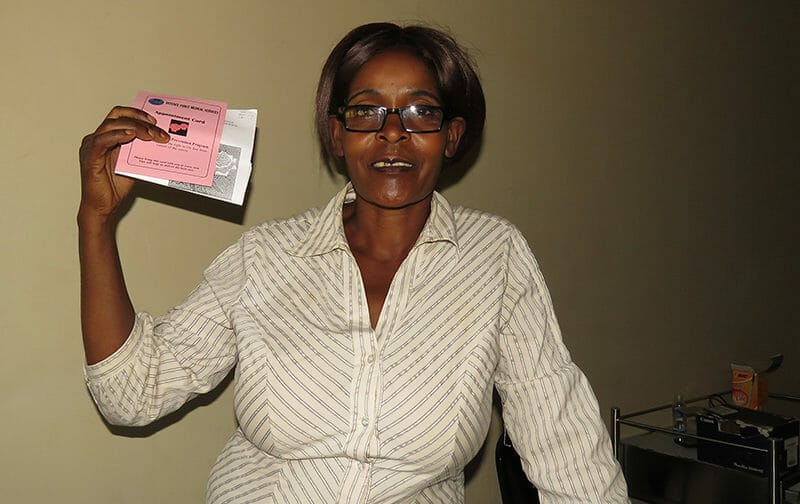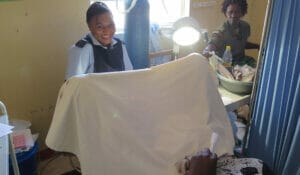News > Blog
Gaining Ground on Cervical Cancer in Zambia
Published 02/04/2020 by Global Communities

Timing is everything. Just ask Janny Zulu.
The 52-year-old single mother of two recently found out she had a precancerous lesion on her cervix, putting her at great risk for cervical cancer. Still, fresh off the news of this diagnosis in January, she expressed gratitude for information she could act on, information once inaccessible to her and many other women in Zambia.
“I am very happy that I made the decision to go back for cervical cancer screening and, when found positive, I received treatment in time,” said Zulu, who first learned about Project Concern International’s mobile outreach services five years ago.
After her first screening in 2015 yielded negative results, Zulu followed the advice of the health care provider and returned for routine screening every couple of years. “None of my family had cervical cancer before, [but] I was aware of a very close friend who had passed away. I did not want to go through the same,” said Zulu, who lives in a rural area of Lusaka, Zambia, far from the nearest medical center.
While distance often hinders people like her from accessing health care services, PCI has partnered with the Zambian Defense Force (ZDF) to bring trained providers to mobile and static health sites. With support from the U.S. government’s President’s Emergency Plan for AIDS Relief (PEPFAR) and the U.S. Department of Defense HIV Prevention Program (DHAPP), these services now include integrated HIV/cervical cancer testing and screening.

“The process is not painful at all,” said Zulu, who has encouraged family members and friends to take the first step of undergoing a screening. “I tell them they have nothing to lose but a lot to gain [from the service].” Through PCI’s program, women with precancerous lesions are provided or linked to treatment, and those who test positive for HIV are linked to antiretroviral therapy (ART) services, improving survival rates for two diseases with one intervention.
This solution has inspired community change and identified new leaders, including 50-year-old Ezelina Phiri in Chipata district.
“Ever since I screened and learned that I am well, I have become an activist, referring women to the clinic for proper screening,” Phiri said. “It is my passion to encourage women to put their health first, and it is my mission to ensure every woman I know is screened and is free of cervical cancer.”
In 2019, TogetHER for Health wrote a case study about PCI’s program, concluding: “By targeting the most vulnerable women, offering them services in a way that meets their needs, and giving low-level health care workers the tools and training to provide high-quality services, PCI is a key player in moving toward eventual cervical cancer elimination in Zambia.”
Every two minutes, a woman dies of cervical cancer somewhere in the world, and Zambia has one of the highest cervical cancer rates of any nation. Yet, almost all of these tragedies are preventable, either through the HPV vaccine or through early screening and treatment.
Last year alone, PCI reached nearly 8,000 women and adolescent girls with cervical cancer prevention, screening and/or treatment. We are proud to support Zambia’s strategy to reduce cervical cancer mortality by 25% by 2025.





